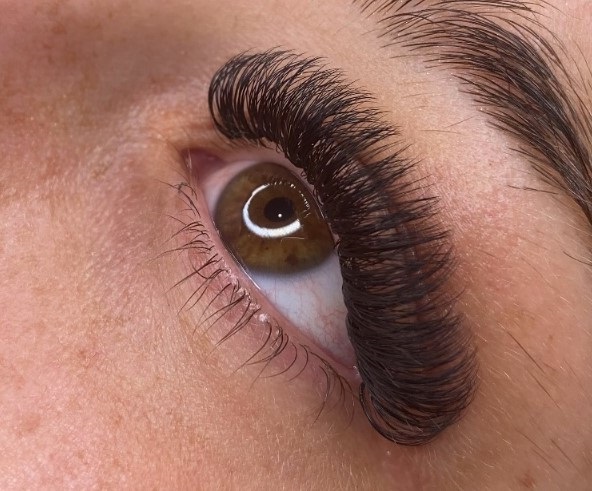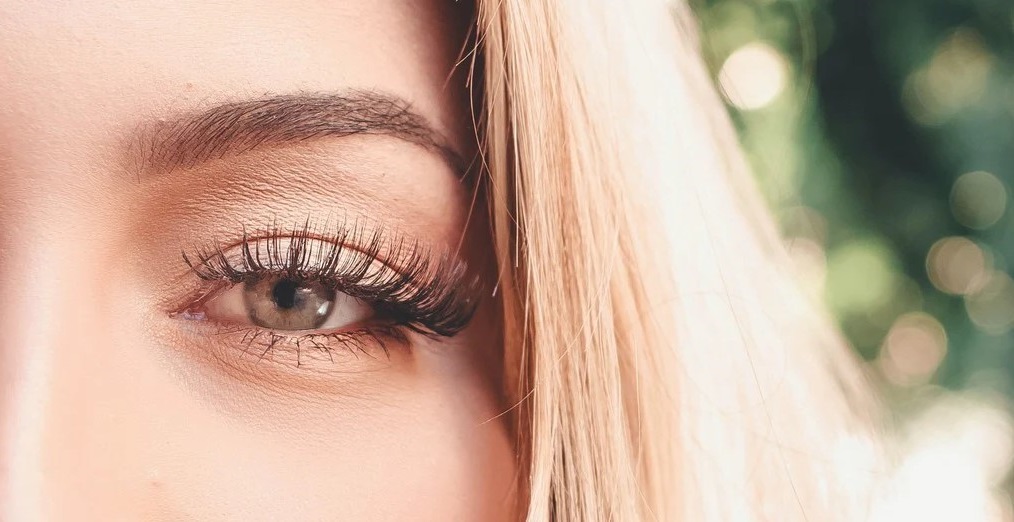The short answer is no; there is no scientific evidence that suggests eyelash extensions have any negative impact on vision. However, it’s important to note that if not properly applied or cared for, lash extensions may cause irritation or dryness around the eye area, which could lead to temporary blurred vision, as well as other side effects such as redness and itching. It is also important to be aware of allergic reactions associated with certain glues used for lash application, so it’s best to consult with an experienced lash artist who can help determine which glue would work best for you without causing any allergies or reactions in your eyes. Additionally, if you already suffer from dry eye syndrome, then having eyelashes done may worsen this condition further due to increased sensitivity around the eye area during the application process and post-care treatments needed after getting them done (e.g., cleaning/washing).
Learn more about common signs of failed eyelash extensions in our companion article.
What Are the Potential Eye Health Risks of Eyelash Extensions?
There are several potential eye health risks associated with eyelash extensions :
- If not properly applied, extensions can cause damage to natural lashes, which could lead to breakage or loss of lash hairs over time.
- The glue used for application may contain certain chemicals that can be harmful to the eyes if exposed to them in large amounts or for a long period of time.
- If the wrong type of glue is used (e.g., one that contains formaldehyde), then this could potentially cause allergic reactions such as redness and itching around the eyes, which, in turn, can affect vision temporarily until symptoms subside.
- Due to increased sensitivity around the eye area during the application process and post-care treatments needed after getting them done (e.g., cleaning/washing), there is also a risk of developing dry eye syndrome from having lash extensions done, which could further worsen any existing condition you already have related to your eye health and vision.
If you have concerns about potential pain or discomfort associated with eyelash extensions, you can learn more about it in our comprehensive guide: ‘Do eyelash extensions hurt?‘
How Can I Ensure Proper Eye Care When Getting Lash Extensions?
To ensure proper eye care when getting lash extensions, it’s important to choose a reputable lash artist, who has followed a good eyelash extension classes and who has experience working with clients who suffer from allergies or other sensitivities related to their skin and eyes, so they know how best to handle those situations accordingly without causing any further damage or discomfort for their clients. It’s also important that all products used during the application process are safe for use around the delicate skin area near your eyes and free from any harsh chemicals that could potentially cause harm or irritation in your eyes over time. Additionally, it’s recommended that you visit an eye doctor before getting lash extensions so they can assess your current state of eye health and advise you on what precautions need to be taken before going ahead with this procedure, as well as provide treatment options should any issues arise afterward (e.g., dryness). Lastly, it’s essential that you follow all instructions given by your lash artist regarding aftercare treatments, such as avoiding water contact within 24 hours post-application, using gentle cleansers instead of makeup removers, and avoiding excessive rubbing/pulling at lashes, in order to minimize the chances of damaging natural lashes or experiencing side effects like blurred vision due to drying out the eyelids too much during the cleansing process, etc.

In conclusion, although there is no scientific evidence linking eyelash extensions directly with negative impacts on vision, it’s still important to be aware of potential risks associated with this beauty procedure, including breakage/loss of natural lashes due to improper application/care, allergic reactions caused by certain glues used for extension adhesion, increased sensitivity around the eye area leading to temporary blurred vision, and dryness due to excessive cleansing resulting in irritation/itching, etc. Therefore, it’s always best to consult an experienced professional before getting these procedures done, who can help determine what type of products would work best for you without causing any allergies or reactions in your eyes, as well as provide guidance on proper aftercare treatments needed to minimize the chances of adverse side effects occurring afterward (e.g., dryness). Following these tips will help ensure healthy-looking beautiful lashes while protecting overall eye health at the same time.

